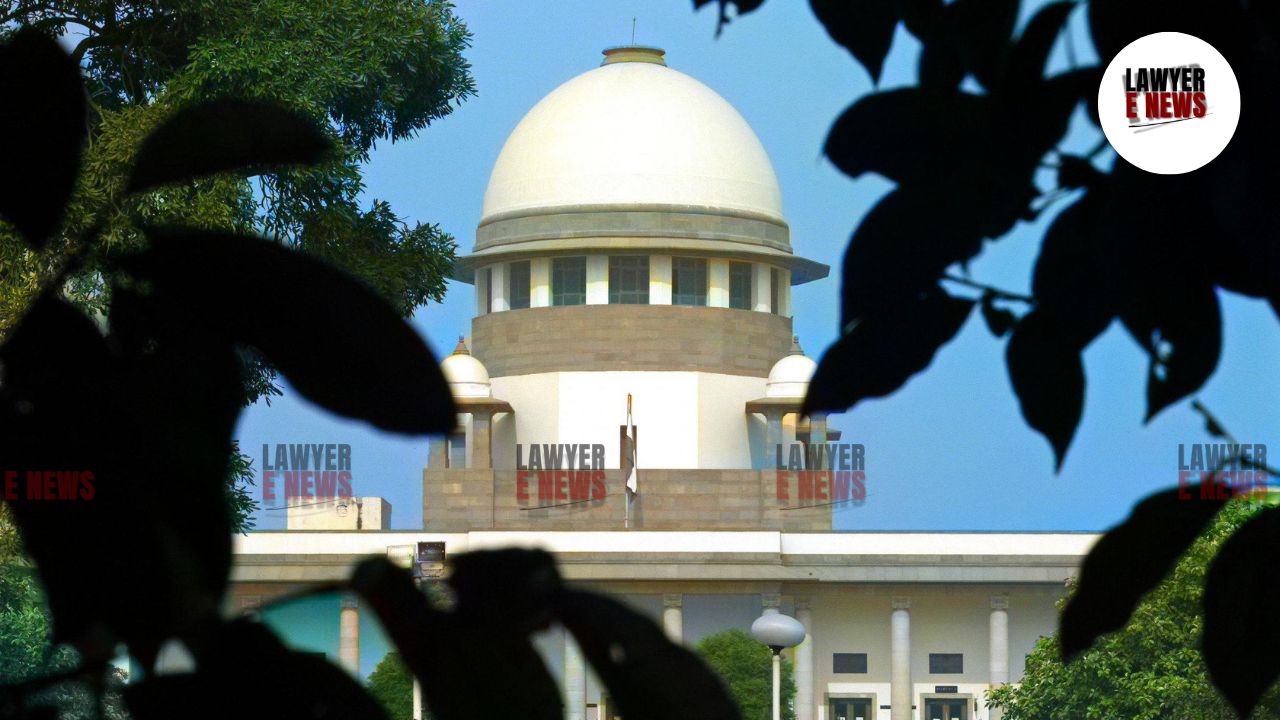-
by sayum
14 February 2026 2:22 PM



In a latest judgement Supreme Court of India addressing disputes over land acquisition compensation and rehabilitation benefits for families displaced by coal mining projects in Odisha. The Court declined to extend the tenure of the Claims Commission, emphasizing its limited mandate, and referred pending issues concerning Village Ratansara’s compensation to the Orissa High Court. This judgment reinforces the principle of finality in claims adjudicated for ten villages while setting clear limits for resolving disputes in the remaining four villages.
The land acquisition for Mahanadi Coal Fields Ltd. (MCL) under the Coal Bearing Areas (Acquisition and Development) Act, 1957 displaced families in 14 villages of Odisha. Disputes over compensation and rehabilitation benefits led to the Supreme Court establishing a Claims Commission in 2010. The Commission was tasked with determining compensation and R&R benefits for affected families, following the "Gopalpur Model."
Reports for ten villages were approved and finalized by the Supreme Court in earlier orders, making the compensation claims non-negotiable. However, issues regarding differential compensation under the Rehabilitation and Resettlement Act, 2013 persisted for four villages—Tumulia, Jhupurunga, Kiripsira, and Ratansara. The November 3, 2022, judgment of the Supreme Court outlined the limited mandate of the Claims Commission to finalize these pending issues.
In the present proceedings, the Commission sought an extension of its term to complete its work, while landowners and displaced families filed miscellaneous applications seeking new directions.
The Supreme Court emphasized the sanctity of its previous rulings and reiterated the limits of the Claims Commission’s mandate. It stated that the finalized claims for ten villages could not be reopened, as doing so would contravene the Court’s earlier directives.
The Court observed that the Commission, in some cases, acted beyond its jurisdiction by reopening resolved issues and addressing matters like resettlement site suitability. The Supreme Court found this contrary to its earlier judgment, which required the Commission to restrict its role to determining differential compensation for the four unresolved villages based on the provisions of the R&R Act, 2013.
For Village Ratansara, objections regarding the methodology of compensation calculation had been transferred to the Orissa High Court in October 2023, where the matter remains pending. The Court clarified that the Orissa High Court would adjudicate this issue and that the Claims Commission’s role in this matter had concluded.
The Supreme Court declined to extend the term of the Claims Commission and dismissed all miscellaneous applications that sought reopening of finalized claims or additional directions for the Commission. The Court reiterated that disputes concerning finalized claims for ten villages could not be reopened.
Regarding the pending compensation disputes for Village Ratansara, the Court directed the Orissa High Court to decide the matter within three months, including resolving objections to the Commission’s methodology for calculating compensation.
For rehabilitation and resettlement benefits for the four villages, including Ratansara, the Court clarified that displaced families should seek relief from the appropriate state authorities as per the November 2022 judgment. It further stated that the Claims Commission had no role in preparing lists for project-affected families or certifying resettlement sites.
This judgment reinforces the finality of earlier rulings on adjudicated claims while ensuring unresolved issues are addressed through appropriate channels. By limiting the role of the Claims Commission and directing pending matters to the Orissa High Court and state authorities, the Supreme Court has streamlined the process of delivering compensation and rehabilitation benefits to affected families.
Date of Decision: January 3, 2025
